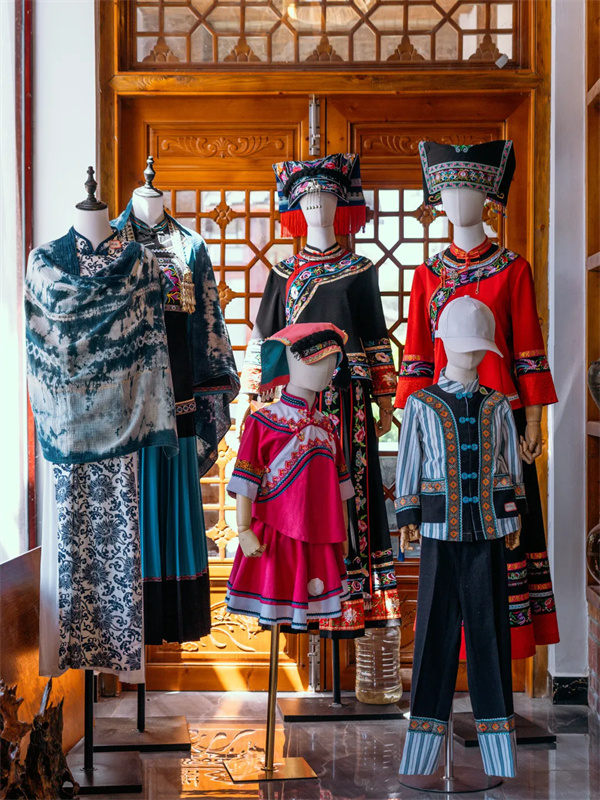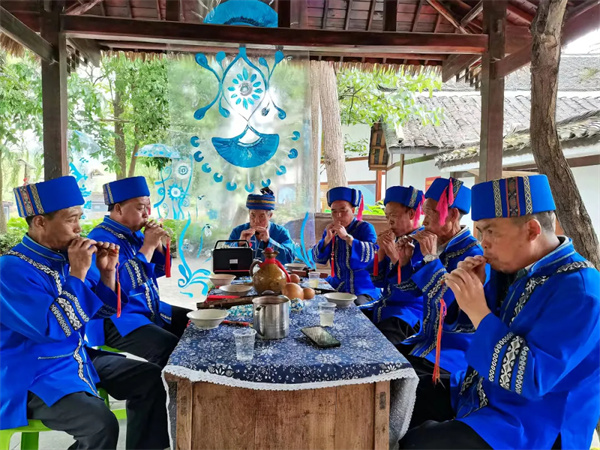Intangible cultural heritage items boost rural tour
Pianpo Bouyei ethnic township in Wudang district, Guiyang, capital of Southwest China's Guizhou province, features rich ethnic culture and beautiful natural views, including local intangible cultural heritage workshops, making it popular for study tours.
Banmu Lishu is an establishment founded by Chen Huizhen, a municipal-level inheritor of Bouyei traditional clothing craftsmanship. Combining intangible cultural heritage experiences with catering, it is home to Bouyei traditional attire, a nationally recognized intangible cultural heritage item.

Traditional Bouyei clothing. [Photo/WeChat account of Wudang district]
In Banmu Lishu, each piece on display embodies the craftsmanship and wisdom passed down through generations. Many of the Bouyei garments displayed here are ancestral heirlooms, with the oldest piece, placed at the center of the exhibition, dating back nearly 200 years.
Here, visitors can personally participate in traditional crafts like embroidery and tie-dyeing, gaining insight into the meticulous craftsmanship and artistic charm of the Bouyei people. In addition to handicrafts, visitors can also experience rice wine brewing, immersing themselves in the rich aroma and exploring the unique brewing techniques and wine culture of the Bouyei ethnic group.
After trying on ethnic clothing, visitors can visit Jingshang Yuanshe – a Bouyei-style countryside homestay, for some traditional Bouyei music. Chen Xingqiao, the owner of the establishment, is a fourth-generation inheritor of the Zimei Xiao.

Local residents play the Zimei Xiao together. [Photo/WeChat account of Wudang district]
The Zimei Xiao is a traditional Bouyei flute with a melodious, gentle, and lyrical sound. It is traditionally played by young men and women as a means of expressing affection during courtship.
Here, you can listen to live performances by Chen as he plays the Zimei Xiao, or even learn how to play it yourself.
Presented by China Daily.
黔ICP备05001922号-3
